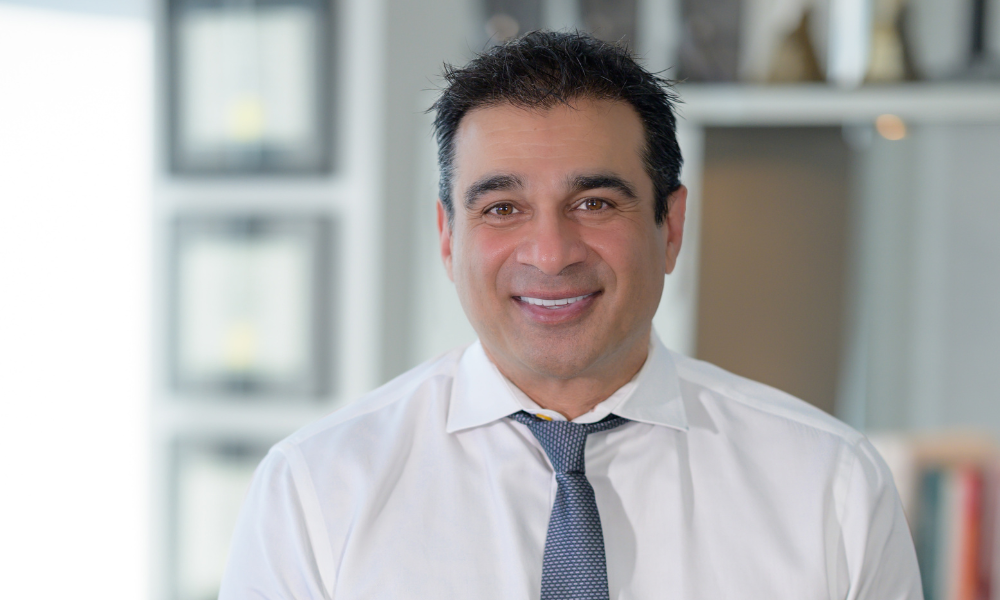Chief investment strategist parses out trendlines from the year so far, highlights where future volatility may come from

Politics have introduced volatility into markets in 2025, that much is clear. The trouble with a year like this one, where so much seems to be happening in such a short period of time, is making sense of what political events have spooked markets and what events they’ve shrugged off. Managing money through this environment, means having to determine where political risks really lie, and where they don’t.
Philipp Petursson explains how politics, policy, and rhetoric have shaped markets so far. The Chief Investment Strategist at IG Wealth Management outlined areas where geopolitics haven’t shifted markets and where they have. Namely, how the trade and tariff policies pursued by President Trump have managed to introduce volatility, while wars and conflict escalation has been largely muted. He explained how political events have been digested and whether some of the political risks have now been so heavily discounted as to become a future threat to market growth yet again.
“You have to draw a line in the sand and in a way, and say, Look, we're either going to plough on assuming that he Trump is going to chicken out as he has in the past, or you're going to be defensive. This year, actually, has been a little bit of both,” Petursson says. “Politics have been more challenging this year because, historically, when you get a policy that policy becomes the new law, it requires a change of strategy, we adjust and move on. This, it changes day by day.”
The political events that have and haven’t impacted markets, in Petursson’s view, can largely be delineated in terms of their impact on corporate earnings. Conflicts in Ukraine and Gaza, for example, come with political and humanitarian risks but not with economic risks. Markets, therefore, have largely shrugged at new developments, not out of callousness but with a view to impact on earnings. That said, escalation of the conflict in the Middle East into a conflict with Iran did briefly spook markets and wider impacts on oil markets could still cause some turbulence. On the whole, though, US trade policy and its wider global economic fallouts appears to be the primary market mover in 2025.
The trouble, in Petursson’s view, is that the rebound in global and even US equity markets experienced after ‘liberation day’ has resulted in a situation where there are “zero risks of the tariffs being priced in.” Investors appear to have fully bought into the TACO (Trump always chickens out) trade and his apparent willingness to reverse course on major policy decisions. Even as a new round of tariff threats, letters, and supposed deadlines go out to US trading partners, signals from senior administration officials appear to point to greater flexibility and market speculation that the economic damage may always prove more muted.
Markets are seeing through the valley of US politics and policy, Petursson explains, because they are inherently forward looking. Equity investors, in his view, have digested the risks associated with politics and policy and decided that these current risks should abate within the year. Instead, they’re refocusing on how companies can make money.
For advisors working with investor clients who are worried by politics and concerned about the news, Petursson stresses the importance of refocusing them on those core business drivers. In helping clients to feel that reassurance, rather than just know it intellectually, he suggests that advisors ask them about their day, the companies they work with or shop at or interact with in the course of their routine. The advisor can show why those companies are in that client’s portfolio, what they do now, and how they can weather economic storms and scary headlines.
“In the last five years, we've had a global pandemic. We've had two major conflicts, Israel and Gaza and Ukraine and Russia. We've had second largest bank failure in the United States. We've had riots on Capitol Hill, very contentious election. We've got a world leader that is saying very disparaging things about everyone around the world,” Petursson says. “If I painted that picture for you and asked how you think the markets are going to do, you would say that sounds pretty bad. And yet, here we are. The market has doubled over the last five years. So it's more what drives stock markets over the long term, and that is corporate earnings.”


